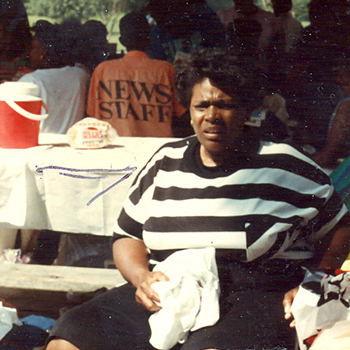
‘Do I Have a Pension?’ Sleuths Can Find it

Betty Taylor is 74 and retired from a job she held for more than a decade filling Spiegel catalog orders and packing them up for shipping – she left in 1984. Diane Taylor, 70, was a packer and then a keypunch operator there between 1982 and 1995.
But the sisters, who live together in their late mother’s house on Chicago’s Southwest Side, couldn’t track down anyone who could confirm that their low-paying jobs entitled them to Spiegel pensions.
This is more common than one might think.
When a single employer or union has continued to maintain its pension plan over several decades, retiring workers know where to go to sign up for their benefits. But the sisters’ pensions got lost amid the confusion and paperwork shuffle around a series of mergers, bankruptcies, and name changes at Spiegel.

The confusion dates back to 1988, when the catalog company, which was founded by Joseph Spiegel after the Civil War, purchased Eddie Bauer. By 2003, Spiegel, loaded down with debt, was filing for bankruptcy protection and was subsequently acquired by the investors in Spiegel’s sole remaining asset, Eddie Bauer. The investors later transferred Spiegel’s pensions to Eddie Bauer’s corporate entity. In 2009, Eddie Bauer also went into bankruptcy, sending the pension funds to their final resting place: the federal Pension Benefit Guaranty Corporation (PBGC), which insures the pensions of failing companies.
Diane felt that a pension, if it existed, could really help out with her precarious finances. And she was pretty certain she remembered a pension from her years at Spiegel. So she started calling around.
“I got the runaround for four years,” she said. “I was persistent, and I was going to keep on until I had one foot in the grave,” Diane said.
First, she said she called Eddie Bauer, who told her to call someone representing the former Spiegel, who sent her right back to Eddie Bauer. She inquired at her Teamsters office, which agreed that her long tenure should entitle her to a pension. She researched the matter on a friend’s computer – nothing. She made a little progress after finding the name of another person to call at Eddie Bauer. He said he saw her name on a list and referred her to someone else inside Eddie Bauer, who said sorry no pension.
Last year, Diane’s and, later, Betty’s pensions were finally located after Diane sought out a Chicago legal services agency, which referred her to the Pension Action Center (PAC) at the University of Massachusetts Boston.
The PAC assists people in Illinois and New England with all types of pension problems, but tracking down missing pensions is one of its main missions. The organization has recovered more than $58 million in pension benefits for some 9,000 clients since 1994.
On May 5, 2017, the PAC opened Diane’s and Betty’s cases, after Diane mentioned that her sister had worked at Spiegel too. A few months later, Diane received a $11,000 retroactive check in the mail for unpaid benefits, along with her first $200 monthly pension check. Three months after that, PAC resolved Betty’s case, resulting in a $23,000 lump sum and $217 a month.
It took some detective work at the PAC to confirm the pensions and begin the payments. Sophie Esquier, the PAC attorney who handled the Taylors’ case, had to go over the same ground Diane did – but she knew what to ask for. She called the PBGC, which frequently coordinates with PAC investigators to establish retired employees’ pension eligibility and begin paying them.
The PBGC needed proof. As a first step, one of PAC’s summer interns called the Teamsters’ Chicago local to get Diane’s, and, later, Betty’ work records. Armed with the information, Esquier called the PBGC. The same answer came back again: “the PBGC had no record” of the Taylor sisters’ pensions, Esquire said.
The PBGC’s denial of the pension didn’t make sense to her, because “both women worked there for over 10 years.” At that point, she decided to open the sisters’ cases.
The PAC contacted the PBGC again and asked officials there to look into it further. The PBGC went to the U.S. Social Security Administration and was able to establish the sisters’ detailed employment and earnings record on file there. The documents were what the PBGC needed to grant the Taylors their pensions.
Things are still tight for Betty. But the pension, on top of her $1,300 Social Security check, helps. “As long as I pay exactly the bills” and no more, she said, “$217 gives more wiggle room.”
Squared Away writer Kim Blanton invites you to follow us on Twitter @SquaredAwayBC. To stay current on our blog, please join our free email list. You’ll receive just one email each week – with links to the two new posts for that week – when you sign up here.
Comments are closed.







I was surprised by this. My understanding was that PBGC was funded by pension plans and would thereby have details on every plan in the country, past and present. I guess you learn something new every day, just not always something you wanted to know.
Wow! I lived on the Southwest side in Chicago and worked at Spiegels too — during the summers. A blast from the past, and I’m so glad they got their money.